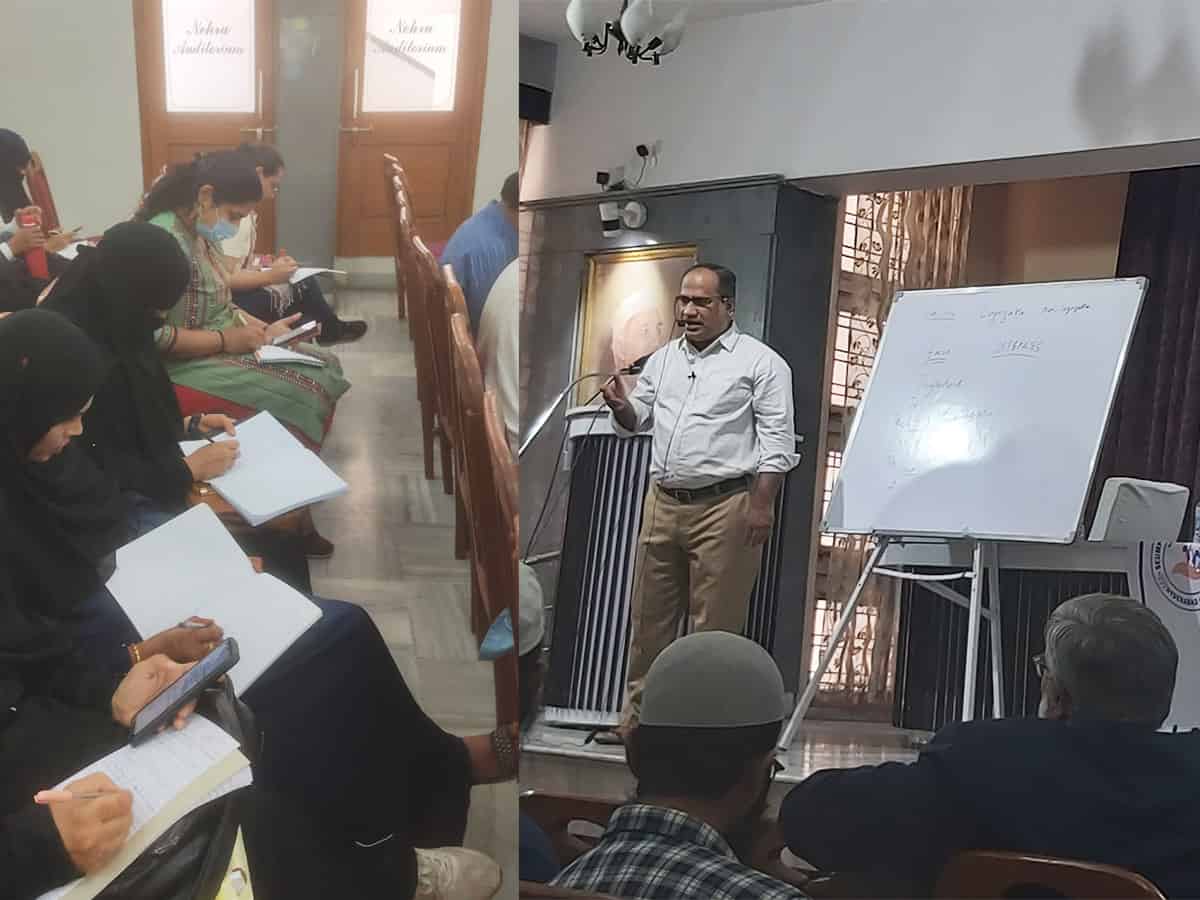
Hyderabad: It was a workshop with a difference. No, it was not about marketing, research, or skill development. It was all about legal awareness. How to file a police complaint, in case of an offence. What’s the thumb rule for writing a complaint and to whom it should be addressed to?
If you think it is a complete waste of time, you are wrong. Many people turned up at this workshop organised by the SEUMP (Socio-Economic Upliftment of Marginalised People) Educational Welfare and Charitable Trust here on Saturday. The Nehru Auditorium at the Madinah Education Centre, Nampally saw many footfalls. People from different walks of life turned up. There were law students, professionals, housewives, retired persons and the man in the street. And that explains how people are at sea when it comes to legal matters.
High Court advocate, M K Anees, explained the basics of writing a police complaint. He actually made the participants write a complaint and then explained the dos and don’ts. That an FIR should be precise and self-explanatory. It should list the facts and not the opinion of the complainant. The complaint should be addressed to the Station House Officer or Inspector of Police.
The day-long workshop saw Anees waxing eloquently about the difference between crime and offence, cognizable and non-cognizable offence. Cutting short the legal jargon, he explained the various enactments of the Criminal Procedure Code, Indian Penal Code and Indian Evidence Act and said most offences are recorded under Section 154 of CrPC. He also talked about Section 320 of IPC to explain what constitutes a grievous hurt that attracts punishment. The biggest hurdle faced by victims while narrating their complaints is the difficulty in overcoming emotions. It is here that the lawyer steps in and provides basic facts to the police. Many in the audience were seen noting down the points.
The interactive workshop saw Anees throwing light on how to report a domestic abuse, communal riot.
What to do if the police do not take action on a complaint. Should one complain about a corrupt police officer? And finally, what are the mistakes relatives generally make when one is arrested by police.
This is the first of the series of workshops on legal awareness SEUMP Educational Welfare and Charitable Trust plan to organise. “The idea is to help the common man protect himself legally,” said Dr. Shoeb Ahmed Khan Sikandar Desai of SEUMP Trust. His organisation also proposed to go for alternative dispute resolution to help people resolve their disputes without lengthy court trials.
Dr. Abdul Wasey Mohammed, chairman, SEUMP Trust, said the workshop was designed to help people navigate the maze of the legal process. He explained the importance of justice and fairness in Islam.



